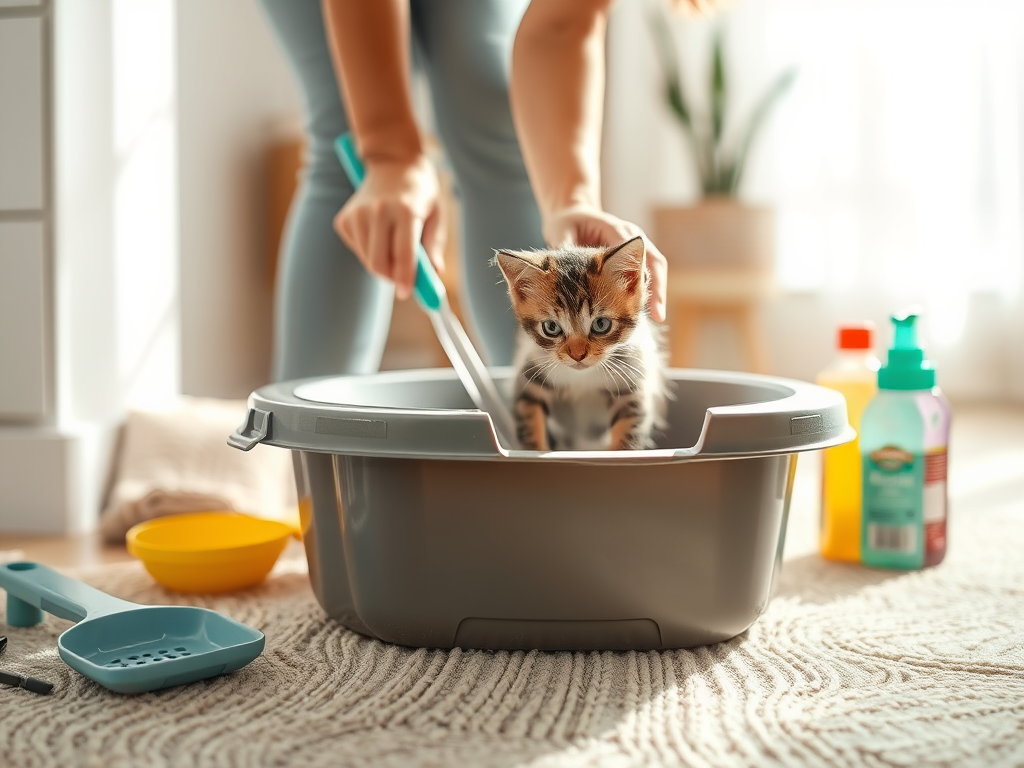Minimizing Kitten Disease Transmission by Cleaning and Disinfecting
Preventing disease in kittens is paramount to their health and well-being. A critical component of this preventative care revolves around meticulous cleaning and disinfecting of their environment. Kittens, with their underdeveloped immune systems, are highly susceptible to a range of infectious diseases that can quickly spread through contaminated surfaces. Understanding the appropriate cleaning and disinfecting protocols is crucial for responsible kitten care and significantly reduces the risk of outbreaks.
Understanding the Sources of Contamination
Before diving into cleaning strategies, it’s important to identify the primary sources of contamination. Kittens, being naturally playful and curious, often come into contact with various pathogens. Their litter boxes, food and water bowls, bedding, and even toys can harbor bacteria, viruses, and parasites. Their own bodily fluids (urine, feces, saliva) are major carriers of infectious agents. Moreover, if multiple kittens share a space, the likelihood of disease transmission escalates significantly. Understanding these contamination sources allows for a targeted and efficient cleaning approach.
Implementing a Comprehensive Cleaning Routine
A comprehensive cleaning routine needs to be consistent and thorough. This isn’t simply about occasionally wiping down surfaces; it demands a regular schedule to minimize the buildup of pathogens. A daily cleaning regime should be implemented, focusing on areas where kittens spend the most time and those prone to contamination. This typically includes:
-
Litter Boxes: Scoop solid waste at least twice daily and completely change the litter entirely every 2-3 days, depending on the number of kittens and litter type. The litter box itself should be thoroughly washed with hot soapy water and allowed to air dry completely before adding fresh litter.
-
Food and Water Bowls: Wash food and water bowls daily with hot soapy water and rinse thoroughly. Consider using a dishwasher if it’s safe for the bowl material. Avoid using harsh chemicals that could harm the kittens if ingested.
-
Bedding and Toys: Wash bedding – blankets, towels, etc. – regularly in hot water, using a detergent appropriate for pet bedding. Similarly, washable toys should be cleaned regularly. For toys that cannot be washed, consider replacing them regularly.
The Importance of Disinfecting: Eliminating Pathogens
While cleaning with soap and water effectively removes visible dirt and some pathogens, disinfecting is essential for eliminating microscopic organisms that may cause disease. Disinfecting for Kitten Safety is a crucial part of this process, as it targets and kills harmful bacteria and viruses. However, choosing the right disinfectant is equally important. Avoid harsh chemicals that could be toxic to kittens if ingested or inhaled.
Look for disinfectants specifically labeled as safe for pet use. Always follow the manufacturer’s instructions regarding dilution and contact time. Ensure the area is properly ventilated during and after disinfecting to prevent the kittens from inhaling potentially harmful fumes. Some recommended disinfectants include diluted bleach solutions (following safety guidelines carefully), enzymatic cleaners (effective for removing organic matter), and commercially available pet-safe disinfectants.
Remember, disinfecting should always follow thorough cleaning. Clean up messes immediately to prevent the spread of pathogens. Soiled surfaces should be cleaned before disinfecting to ensure optimal effectiveness of the disinfectant.
Further Preventative Measures for Kitten Health
Beyond cleaning and disinfecting, several other preventative measures contribute significantly to minimizing disease transmission:
-
Vaccination: Consult your veterinarian about a suitable kitten vaccination schedule to protect your kittens from common and potentially fatal diseases.
-
Parasite Prevention: Regularly check your kittens for fleas, ticks, and other external parasites, and administer appropriate preventative medications as recommended by your vet.
-
Quarantine: If introducing a new kitten, quarantine it from existing pets for a period of time to ensure it’s healthy and not carrying infectious diseases.
-
Hygiene: Always practice good hygiene when handling kittens. Wash your hands thoroughly before and after handling them, and avoid kissing or closely sharing your face with the kittens.
Maintaining a clean and disinfected environment is not merely about tidiness, but a fundamental aspect of responsible kitten care. By understanding the sources of contamination, implementing a thorough cleaning routine, and utilizing appropriate disinfectants, you significantly reduce the risk of disease transmission and ensure the health and happiness of your furry companions. Remember to always consult with your veterinarian if you have any concerns about your kittens’ health or the best practices for their care.

